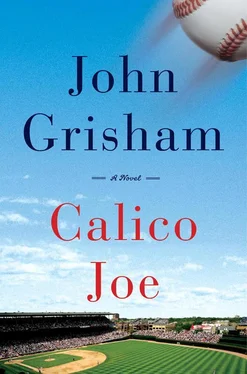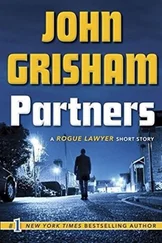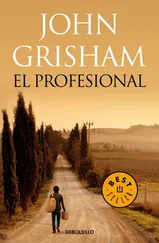The beaning of Joe Castle caused a thirty-minute delay in the game, and after he was gone, the umpire allowed Warren Tracey a few warm-up throws. The stadium was subdued. The Mets fans were uneasy, and the Cubs fans were exhausted from screaming and booing. Billy Williams stepped to the plate and dug in from the left side. Williams, a future Hall of Famer, was an easygoing type, but at that moment any pitch even close to his head would start trouble. Razor Ruffin took a lead but stayed close to the bag. He was in the game to fight, not steal. Tracey’s first two pitches were far outside. He had lost his rhythm and was throwing, not pitching. With the count 2 and 2, Williams hit a lazy pop fly to center, an easy third out. When it was obvious the ball would be caught by Don Hahn, Razor Ruffin broke for the mound. As Warren Tracey watched the fly ball, Ruffin slammed into the back of his knees and knocked him halfway to third base. Ruffin then pounced on him with both fists and began flailing away. The Cubs, who of course knew the plan, launched a full assault and engulfed Tracey and Jerry Grote. The rest of the Mets were a few steps behind, but within seconds one of baseball’s ugliest incidents was under way. Fistfights spun off as old scores were settled. Bodies hit the turf as four dozen great athletes kicked and punched and tried to kill each other with their bare hands. At the bottom of the pile, Razor Ruffin and Warren Tracey were still locked up, choking, gouging, trying to break bones and draw blood. The umpires were hapless in their efforts to separate the teams. Security guards poured onto the field. Normally, the coaches would try to unlock their players, but not with this brawl. As it continued, the fans went wild, and Shea Stadium seemed on the verge of a riot. Bedlam reigned until a few of the veterans for both teams—Ron Santo, Rusty Staub, Billy Williams, and Tom Seaver—succeeded in pulling their teammates away from the action. When the pile was uncovered, Warren Tracey bounced up with a bloody nose and pointed his finger at one of the Cubs. The umpires shoved him away, and two of his teammates dragged him toward the dugout. He was cursing, shouting, and bleeding until he disappeared. Order was finally restored. Both managers were ejected, along with Tracey, Ruffin, and six of their teammates.
* * *
By the time the game resumed, I was too stunned to think clearly. I had witnessed a nightmare—the gruesome beaning of Joe Castle, followed by the emotional shock of watching my father get pummeled by an entire team. My mother was fed up too. “I’d like to leave now,” she whispered. “Me too,” I said.
We rode the train home without a word. I went to my room and crawled into the bed. I did not turn on the television, though I was desperate for news about Joe. I was determined not to fall asleep because I had to know if my father came home that night. I doubted he would, and I was right. Shortly before midnight, the phone rang and my mother answered it. A male voice threatened to kill Warren Tracey and burn down our house in the process. My mother called the police, and at 2:00 a.m. my mother and I were chatting with an officer at the kitchen table.
It was the first of many threatening calls. For the next few months we lived in fear, and of course my father was rarely home to protect us.
At the age of eleven, I wanted to change my name.
13

The mosquitoes find us, and we retreat from the porch. Fay serves strawberries and cream, with some strange herbal tea, in the cluttered library. From ceiling to floor, the walls are covered with rows of books, and there are neat stacks around an old desk. Indeed, there are books all over the house, most covered with dust and packed on sagging shelves, much like an old secondhand bookshop. The Rooks are well-read and thoroughly engaging as conversationalists. I have talked enough and want to listen for a while.
“We were listening to the game on the porch, weren’t we, Fay?” Clarence asks.
“Yes, around front. I’ll never forget it.” As the evening progresses, I realize Fay knows almost as much about the game as Clarence. “Very sad.”
“Vince Lloyd and Lou Boudreau seemed to know immediately that Joe was not getting up. Lou flat out called it a beanball, a payback since Joe had homered the first time up. As we waited and waited, they filled in the gap with some research. Warren Tracey had led the National League in hit batsmen in 1972 and was tied for the lead in 1973. Lou called him a headhunter, among other things. Both agreed that Joe seemed to freeze when the pitch was released. You could tell from their tone that the situation was pretty grim.”
“Has Joe ever talked about it around here?” I ask. “Not on the record, but maybe to his friends or even his brothers?”
“Not to my knowledge,” Clarence replies. “A few years later, a reporter from Little Rock—was it the Democrat or the Gazette , Fay?”
“I think it was the Gazette ,” she says. “It’s in one of the notebooks.”
“But this guy showed up and managed to get an audience with Charlie and Red. He quizzed them about how Joe was doing these days, and so on. He also asked about the beaning, and they said that Joe simply doesn’t remember it. That’s the only time I can recall the family talking about it. Must’ve been twenty years ago.”
“Is there brain damage?” I ask.
Clarence and Fay look at each other, and it is obvious there are things not to be discussed in my presence. “I don’t think so,” he says, finally, “but he’s not a hundred percent.”
Fay says, “Clarence is one of the few townsfolk Joe will speak to. Not talk to, as in a conversation, but he has always liked Clarence and will at least acknowledge his presence.”
“I’m not sure anyone other than his mother really knows what goes on inside his head,” Clarence says.
“And he lives with her?”
“Yes, three blocks away.”
It is almost 10:00 p.m., and Fay is ready for bed. She gathers the dishes, gives me instructions on where to sleep, and says good night. As soon as she is gone, Clarence says, “I need a little digestif, you?”
As far as I can tell, Clarence is cold sober. He did not finish his last lemon gin over dinner and shows no sign of being tipsy. Same for me—my last sip of alcohol (and the last sip of lemon gin in my lifetime) was two hours earlier. My clock is running on mountain time, one hour behind Arkansas, so I am not quite ready for bed. And I want to listen to Clarence. “Such as?” I ask.
He is already on his feet, lumbering out of the room. “Ozark peach brandy,” he says and disappears.
It is a clear liquid with a slight amber tint. He pours it from an ominous-looking jug into two small shot-like glasses. When he sits down, we touch glasses and he says, “Cheers. Now, be careful. You need to sip it very slowly at first.”
I do. A blowtorch could not be hotter on my lips and tongue. I keep a game face and manage to choke it down, with flames scorching my esophagus until the last drop hits my unsuspecting stomach. He watches me carefully, waiting for some comical reaction, and when I keep my composure, he says, “Not bad, huh?”
“What is it—gasoline?”
“It’s a local product made by one of our better distillers.”
“And untaxed, I presume?”
“Highly untaxed and illegal as hell.” He takes another sip.
“I thought moonshine causes blindness and liver damage.”
“It can, but you gotta know your source. This is good stuff, some of the best—light, tasty, virtually harmless.”
Читать дальше












